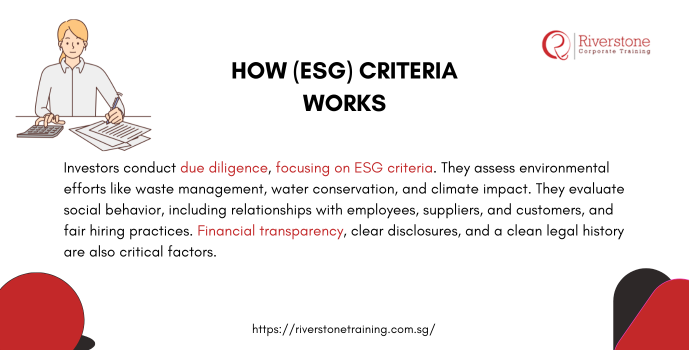
WHAT IS ENVIRONMENTAL, SOCIAL, AND GOVERNANCE (ESG)?
The term ESG (Environmental, Social, and Governance)
Is a standard which helps the investors screen an investment based on environment, social and governance. These three factors are considered while checking the sustainability of investments in a business. Each element in ESG stands for the value of the business and examines whether the companies are practicing those values.
Environmental criteria make sure the company doesn’t have too many adverse effects on the environment. It checks whether a company is a steward for nature. It keeps the company in check and encourages them to compensate for the adverse effects on the environment. Social criteria ensure that a company is ethical towards its employees, suppliers and customers. It encourages the company to be fair and ethical with everyone. Governance is related to the company audits, leadership, pay, and shareholder price.
Now looking at the financial revolution, brokerage firm and mutual fund companies have started offering financial products that follow the environmental, social, and governance criteria. Also, the young investors are just not looking for investments, and they are looking for some value as well. Looking at the environmental and social conditions, young investors are very much in favor of sustainable investment. They want to invest in companies that pass the ESG criteria.
HOW (ESG) CRITERIA WORKS?
The investors do their due diligence before investing in a company. There is a range of criteria investors consider to assess a company or an investment based on ESG.
The environmental behavior, the investors, see the company’s effort to diminish its negative impact on the environment. They also consider waste management, water conservation and pollution control. Now, investors consider things like climate change, deforestation, and depletion of resources under the environment.
Next, investors look at the social behavior of the company. They assess the company’s relationship with its employees, suppliers and customers. Investors while considering social action, look for value. They analyze if the company is hiring people with the same amount as the company.
Since the investors will be investing in the company, they see the financial status as well. They expect the company to have a transparent accounting and disclosure system. Also, they keep track of the legal history of the company. The investors would want to invest in a company that has no involvement in illegal activities.
CONCLUSION:
Through ESG, investors make sure the money is going to the right companies. Earlier, companies with no social responsibility and governance were earning. They had a huge profit from the investments in their project. But that resulted in the emission of carbon. Before ESG there was no bar, no company was in check. ESG keeps watch and prevents a company from any hazardous situations. It reduces the risk factor for the companies.
ESG helps businesses turn away from a global economy and become a low carbon economy, which can be very generous for the environment.




